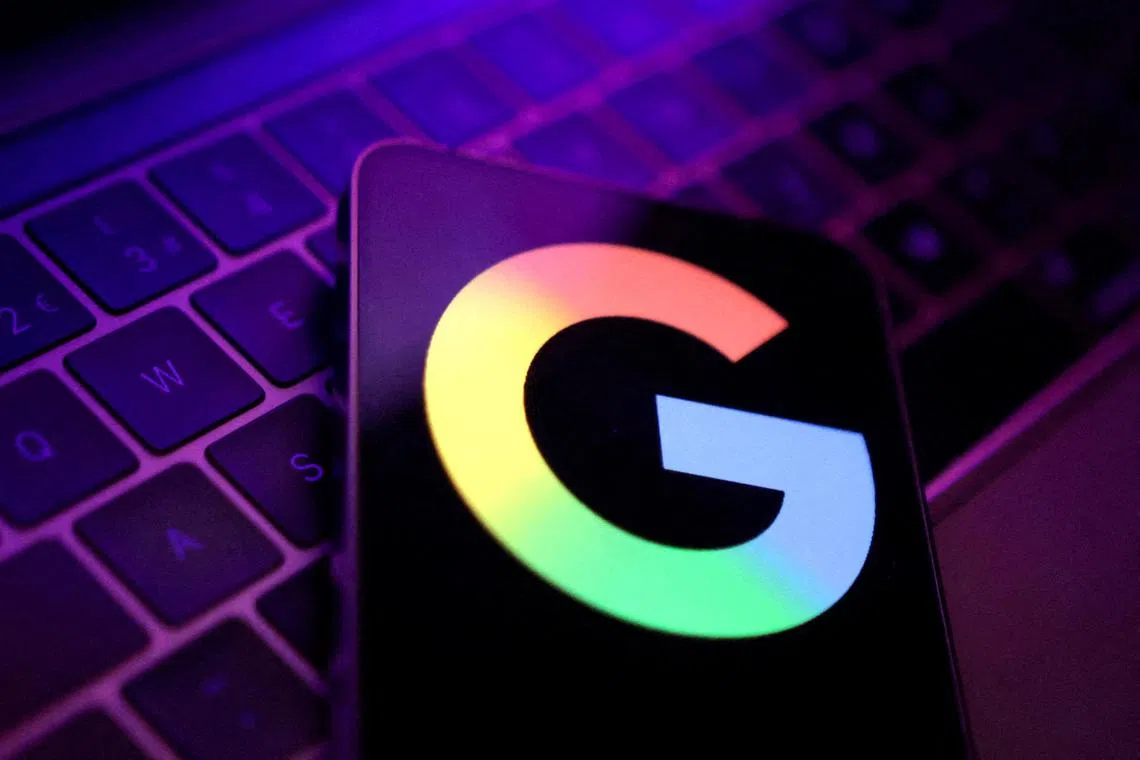Google not required to sell Chrome in antitrust victory
Sign up now: Get ST's newsletters delivered to your inbox

In 2024, a judge found that Google illegally maintained monopolies in online search.
PHOTO: REUTERS
- Judge rejected US demand for Google to sell Chrome, deeming it too risky and messy for the company.
- Google must provide search data to competitors and offer search result syndication to improve their services.
- Restrictions extended to AI chatbots to prevent Google from dominating; other antitrust cases against Big Tech ongoing.
AI generated
WASHINGTON - A US judge on Sept 2 rejected the government’s demand that Google sell its Chrome web browser as part of a major antitrust case, but imposed sweeping requirements to restore competition in online search.
The landmark ruling came after Judge Amit Mehta found in August 2024 that Google illegally maintained monopolies in online search
“Today’s decision recognises how much the industry has changed through the advent of AI, which is giving people so many more ways to find information,” said Google vice-president of regulatory affairs Lee-Anne Mulholland.
“This underlines what we’ve been saying since this case was filed in 2020: Competition is intense and people can easily choose the services they want.”
Ms Mulholland added that Google has “concerns” about how court-imposed requirements to share search data and limit distribution of services will affect user privacy.
Judge Mehta’s decision in the Google case represents one of the most significant rulings against corporate monopoly practices in two decades, and could have fundamentally reshaped the tech giant’s future.
The Justice Department called the remedies “significant”.
“We will continue to review the opinion to consider the Department’s options and next steps regarding seeking additional relief,” Assistant Attorney General Abigail Slater said in a release.
However, the decision on Sept 2 fell short of expectations from some observers who had anticipated more radical changes to Google.
“It sounds like the judge felt that it was too draconian to provide some of the remedies that prosecutors or the Department of Justice wanted,” said professor Carl Tobias of the University of Richmond Law School.
“Google is certainly not going to be broken up, and it’s not clear that its business model is going to change a whole lot.”
The US government had pushed for Chrome’s divestment,
But in his ruling, Judge Mehta warned that a Chrome divestiture “would be incredibly messy and highly risky” and said US attorneys had overreached.
The case primarily focused on Google’s expensive distribution agreements with Apple, Samsung, and other smartphone manufacturers that established Google as the default search engine on iPhones and other devices.
‘Crippling’ effects
In his decision in 2024, Judge Mehta said Google’s default status on the iPhone allowed the company to evolve into an internet powerhouse, insulated from competitive threats.
But in a surprise move, Judge Mehta on Sept 2 said an outright ban of these deals was off the table, insisting that such a prohibition could have too profound an effect on other businesses.
“Google will not be barred from making payments or offering other consideration to distribution partners for preloading or placement of Google Search, Chrome, or its GenAI products,” the judge wrote.
Minutes after the decision, shares in Google parent Alphabet rocketed by 7.5 per cent in after-hours trading. Apple’s stock rose by more than three per cent.
“This is a monster win for (Apple) and for Google it’s a home run ruling that removes a huge overhang on the stock,” said Mr Dan Ives of Wedbush Securities.
Under the judge’s order, Google must make available to “qualified competitors” search index data and user interaction information that rivals can use to improve their services.
The ruling also specifically addresses the emerging threat from generative artificial intelligence chatbots like ChatGPT, extending restrictions to prevent Google from using exclusive deals to dominate the AI space as it did with traditional search.
A technical committee will oversee implementation of the remedies, which take effect 60 days after the final judgment is entered.
Offensive against Big Tech
Google faces another legal case, awaiting a federal court decision in Virginia regarding its web display advertising technology business.
A separate judge ruled earlier this year that Google’s ad tech operations also constitute an illegal monopoly that stifles competition.
These cases are part of a broader government and bipartisan offensive against Big Tech. The US currently has five pending antitrust cases against major technology companies.
The original search engine case against Google, along with a separate case targeting Meta, originated during the first Trump administration in 2020.
The Biden administration maintained these prosecutions while launching additional cases against Apple and Amazon, as well as the second case challenging Google. AFP


